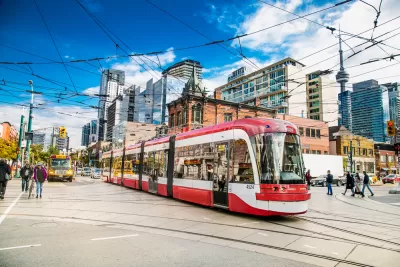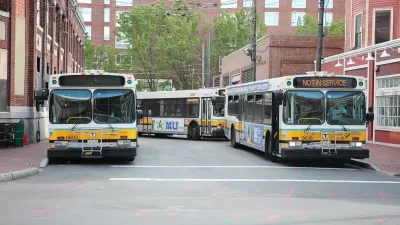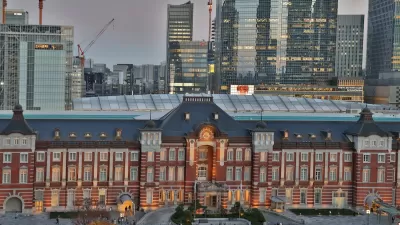A brief outage of traffic lights at one Toronto intersection inadvertently gave area streetcars more priority, speeding up service for transit users.

A temporary glitch in the traffic lights at Queen and Spadina streets in Toronto revealed how improved signal priority could enhance service on local streetcars.
As Jack Landau explains in blogTO, “The malfunctioning traffic signals forced motorists to treat the intersection as a four-way stop. While this was in no way beneficial to the flow of vehicle traffic, it actually made for a head-scratching improvement for streetcars passing through the chaos.” The change in traffic flow “made it easier for Spadina streetcars to cross without needing to wait for left-turning and cross traffic,” explained Derek Ellis on social media.
Transit advocates say the unplanned experiment shows that the city can do more to prioritize transit by using signal timing and dedicated lanes to improve transit speed and reliability. As transit writer Steve Munro put it, “This should be required reading for everyone at City Hall who likes to talk about ‘transit priority.’”
FULL STORY: Broken traffic signals somehow improved Toronto intersection

Alabama: Trump Terminates Settlements for Black Communities Harmed By Raw Sewage
Trump deemed the landmark civil rights agreement “illegal DEI and environmental justice policy.”

Planetizen Federal Action Tracker
A weekly monitor of how Trump’s orders and actions are impacting planners and planning in America.

The 120 Year Old Tiny Home Villages That Sheltered San Francisco’s Earthquake Refugees
More than a century ago, San Francisco mobilized to house thousands of residents displaced by the 1906 earthquake. Could their strategy offer a model for the present?

LA’s Tree Emergency Goes Beyond Vandalism
After a vandal destroyed dozens of downtown LA trees, Mayor Karen Bass vowed to replace them. Days later, she slashed the city’s tree budget.

Sacramento Leads Nation With Bus-Mounted Bike Lane Enforcement Cameras
The city is the first to use its bus-mounted traffic enforcement system to cite drivers who park or drive in bike lanes.

Seattle Voters Approve Social Housing Referendum
Voters approved a corporate tax to fund the city’s housing authority despite an opposition campaign funded by Amazon and Microsoft.
Urban Design for Planners 1: Software Tools
This six-course series explores essential urban design concepts using open source software and equips planners with the tools they need to participate fully in the urban design process.
Planning for Universal Design
Learn the tools for implementing Universal Design in planning regulations.
Ada County Highway District
Clanton & Associates, Inc.
Jessamine County Fiscal Court
Institute for Housing and Urban Development Studies (IHS)
City of Grandview
Harvard GSD Executive Education
Toledo-Lucas County Plan Commissions
Salt Lake City
NYU Wagner Graduate School of Public Service





























